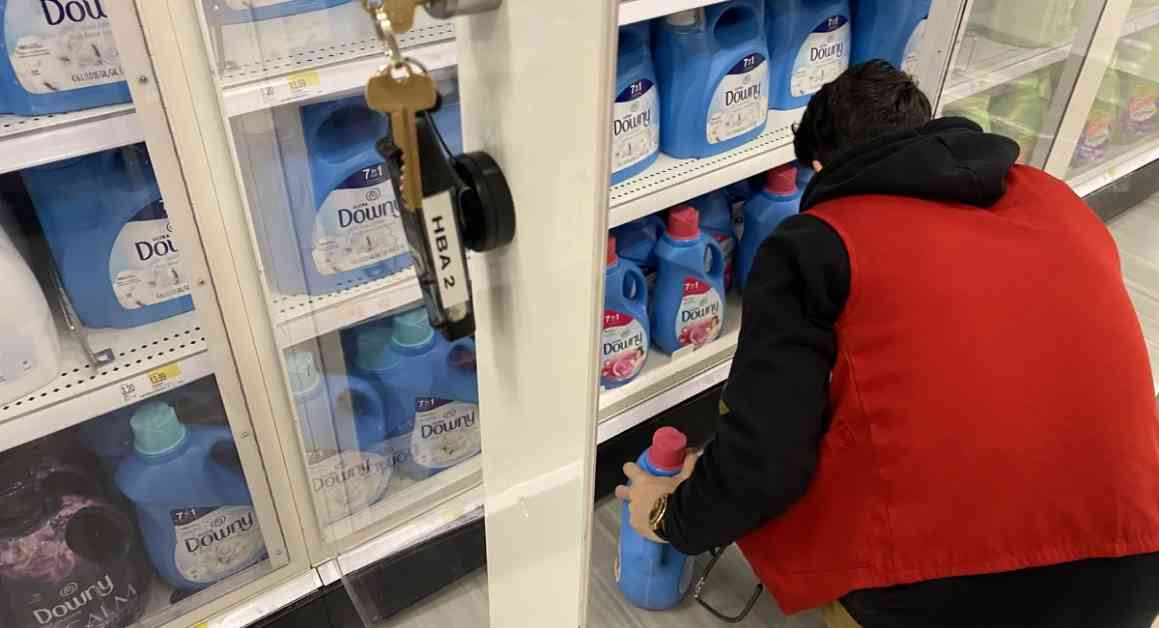District attorneys in New York City are implementing new strategies to combat shoplifting by training retailers on how to ban repeat offenders and threaten serious prison sentences for those who attempt to shoplift again. This initiative comes as retail pharmacies are securing more products behind lock and key, leading to long waits for customers trying to purchase everyday items like toothpaste.
One innovative approach involves issuing “trespass notices” to alleged shoplifters, warning them that they will face burglary charges if they return to the store. This tactic provides prosecutors with a means to elevate offenses from overwhelmed misdemeanor courts to potential detention on Rikers Island, unless the accused can afford to pay cash bail. While the city has seen a rise in low-level crimes, defense attorneys argue that these efforts unfairly target individuals experiencing poverty, circumventing recent state reforms that eliminated cash bail for most misdemeanors and nonviolent felonies.
Training for Retailers
Law enforcement officials have been conducting training sessions for retailers to educate them on how to implement this new approach effectively. Andrew Warshawer, deputy chief of the Trial Division at the Manhattan District Attorney’s office, emphasized the importance of upgrading shoplifting charges to felony burglary offenses through the use of trespass notices. By serving formal notices to banned individuals and then charging them with burglary upon their return, prosecutors can shift cases from minor misdemeanors to felonies carrying one to three-year prison sentences.
The Manhattan DA’s office initiated its training program last October, focusing on large retailers and conducting five sessions with over 200 business owners and employees. Similarly, Brooklyn and Queens have also launched their own programs, with Brooklyn expanding from a few precincts to others and Queens seeing significant success with over 1,600 trespass notices filed since 2021.
Although some prosecutors view these upgraded charges as a means of reintroducing accountability and the possibility of rehabilitation, defense attorneys have raised concerns about the impact on vulnerable individuals. Gina Mitchell, an attorney for Queens Defenders, highlighted cases where clients faced felony charges and potential prison time for minor property offenses, arguing that these policies ultimately criminalize poverty and divert individuals in need of treatment directly to jail.
Impact on the Community
Proponents of the new measures believe that they offer an opportunity for shoplifters to receive necessary treatment, such as drug or mental health services, as an alternative to incarceration. Queens District Attorney Melinda Katz emphasized the importance of addressing the root causes of shoplifting through rehabilitation programs to prevent repeat offenses and reduce strain on the court system.
Meanwhile, brick-and-mortar retailers are grappling with challenges posed by the rise of online shopping, making initiatives like the trespass notice strategy even more crucial in protecting businesses from losses due to theft. Daniel Bernstein, executive director of the Columbus-Amsterdam Business Improvement District, expressed support for the program, noting that several businesses had raised concerns about recurring shoplifting incidents.
In the evolving landscape of criminal justice reforms and retail security, the debate over the effectiveness and implications of these strategies continues. While prosecutors aim to curb retail crime and hold offenders accountable, defense attorneys advocate for a more compassionate and nuanced approach that addresses underlying issues of poverty and addiction without resorting to punitive measures.
The intersection of law enforcement, retail operations, and social justice remains a complex and evolving terrain, where the balance between deterrence, rehabilitation, and fairness is constantly being weighed and redefined. As the city navigates these challenges, the ultimate goal is to create a safer, more equitable environment for all members of the community, balancing the needs of businesses with the rights and well-being of individuals who may find themselves on the wrong side of the law.












